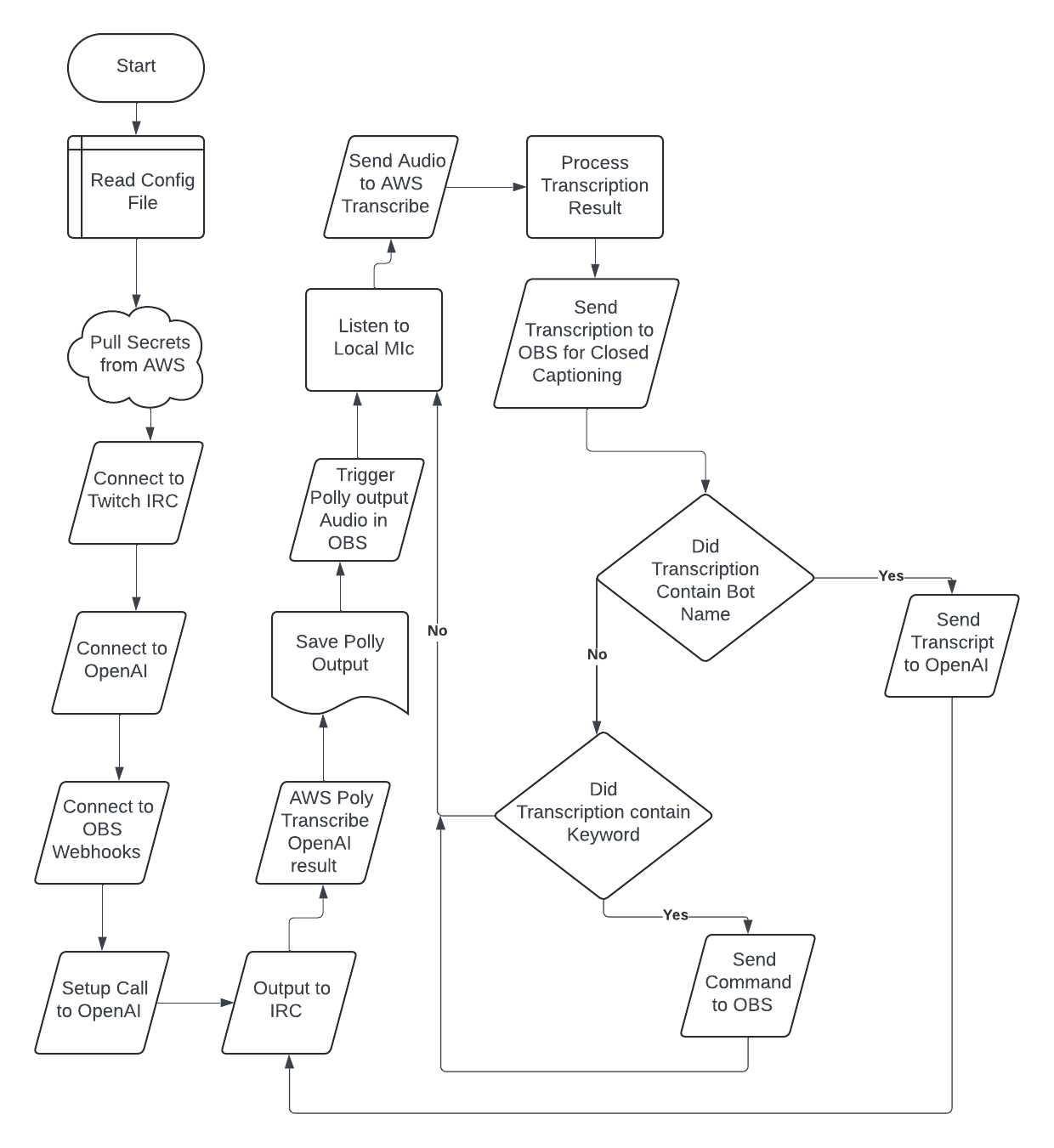def listen_local(self):
loop = asyncio.get_event_loop()
print("Firing off Flask")
thread1 = threading.Thread(target=lambda: self.myWebServ.run(
host=self.config_data["flask_host_ip"], port=self.config_data["flask_host_port"],
use_reloader=False, debug=True), args=()).start()
#self.myWebServ.run()
self.myWebServ_up = True
print("Listening to local Mic")
thread2 = threading.Thread(loop.run_until_complete(self.basic_transcribe()))
#loop.run_until_complete(self.basic_transcribe())
#loop.run_until_complete(self.launch_flask_server())
loop.close()
Since the weather was suppose to be hotter today and it was suppose to storm throughout the day, I opted to work on my tech projects today. I started the day by streaming my work on Raphael bot, where I quickly was able to fix the issue where Raphael was ignoring me. Next I turned my attention to the scene switching command. After adding several variants to the list of commands I was able to get a demo working quite well on stream and pushed the changes to my GitHub Repository.
With Raphael being in a good place, I turned my attention to my new flask based blog engine. After some troubleshooting I was able to find a problem, and figured out that part of the issue with my curl test commands was that I wasn’t saving the cookie that curl was getting from the login api call. With my curl issues solved, I turned to obscuring my blog user password when calling my curl commands. The last thing I worked on before turning my attention to a discord movie watch party was adding a file upload method to my blog API. With the hours of my Sunday winding down, I turned my attention to the documentation for Raphael since I noticed that someone had started following the repository.

Demo:
I've been working on a Twitch bot for a couple weeks now. I've got transcription mostly working. So far, I have gotten chat messages going to Twitch chat, and the bot recognizes it's name. When it recognizes its name and calls ChatGPT to answer questions for the streamer.